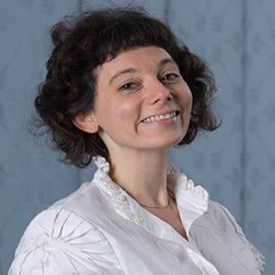Contributor : Profile
Rachel Brulé is an Assistant Professor of Global Development Policy at the Frederick S. Pardee School of Global Studies at Boston University and Core Faculty of the Global Development Policy Center’s Human Capital Initiative. Her research interests are broadly in comparative politics, international development, political economy, and gender, with a geographical focus on South Asia. Specifically, she studies the relationship between political representation and inequality in social and economic domains across democratic and hybrid political regimes. Her book, Women’s Representation and Resistance (Cambridge University Press, 2020) shows that women’s political representation catalyzes effective claims to fundamental economic rights, in particular land inheritance. She has conducted extensive field work in India, Africa, and the Middle East, and her current research leverages a combination of randomized controlled trials, survey experiments, and natural quasi-experiments to improve causal inference about when quotas effectively redistribute power and improve policy and economic outcomes for socially stigmatized groups across India, what enables women’s substantive political engagement and empowerment in hybrid regimes such as Nepal, and how the nature of inequality alters support for local and global protection of citizens’ economic and environmental welfare across developing countries.
Before joining BU, Rachel was an Assistant Professor of Political Science at New York University, based in Abu Dhabi and affiliated in New York. Her articles are forthcoming or published in the Journal of Politics, the Journal of Development Economics, and Asian Survey. Her co-authored work with Nikhar Gaikwad (“Culture, Capital & the Gender Gap in Political Economy Preferences”) was awarded the Pi Sigma Alpha Award for Best Paper Overall and Kellogg Notre Dame Award for Best Paper in Comparative Politics presented at the Midwest Political Science Association’s annual 2017 meeting. She is a recipient of a Marshall Scholarship and a Truman Scholarship, and has worked to develop, implement, and analyze randomized control trials on the impact of economic rights and resources in collaboration with MIT’s Poverty Action Lab and the World Bank. She holds a PhD in Political Science from Stanford University.
Posts by Rachel Brulé
वंश मानदंड और महिलाओं की राजनीति में सहभागिता
स्थानीय राजनीति में महिलाओं के प्रतिनिधित्व हेतु आरक्षण ने हालांकि एक मार्ग प्रशस्त किया है, लेकिन इसने उन बुनियादी समस्याओं का समाधान नहीं किया जो महिलाओं को राजनीति में पूर्ण रूप से शामिल होने से रो...
-
 Rachel Brulé
Rachel Brulé  Nikhar Gaikwad
Nikhar Gaikwad  06 जुलाई, 2021
06 जुलाई, 2021
- लेख
Lineage norms and women’s political participation
While reservation for local political representation of women has made major headway, this has not addressed the structural problems that prevent the full incorporation of women into politics. Based ...
-
 Rachel Brulé
Rachel Brulé  Nikhar Gaikwad
Nikhar Gaikwad  23 June, 2021
23 June, 2021
- Articles
भारत में महिलाओं के विरासत के अधिकार और पुत्र की प्राथमिकता
भारत में अस्वाभाविक रूप से पुरुष-पक्षपाती जनसंख्या लिंग-अनुपात का एक महत्वपूर्ण कारण भारतीय माता-पिता की पुत्र होने की महत्वाकांक्षा है। यह लेख इस बात की पड़ताल करता है कि उनकी यह इच्छा किस हद तक उनकी...
-
 Sonia Bhalotra
Sonia Bhalotra  Rachel Brulé
Rachel Brulé  Sanchari Roy
Sanchari Roy  27 अगस्त, 2020
27 अगस्त, 2020
- लेख
Women’s inheritance rights and son preference in India
An important driver of India’s unnaturally male-biased population sex ratio is the desire among Indian parents to have sons. This article investigates the extent to which this desire is driven by th...
-
 Sonia Bhalotra
Sonia Bhalotra  Rachel Brulé
Rachel Brulé  Sanchari Roy
Sanchari Roy  29 October, 2018
29 October, 2018
- Articles




